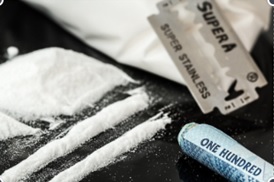Addiction is described as a process where a person engages in a behaviour or substance in order to feel a rewarding effect and an incentive to repeat the behaviour.
Addiction can also be recognised as reinforced distorted thought patterns. They create a physical or psychological need to do something which is potentially harmful to you and people close to you.
Thoughts and beliefs however can either be rational (accurate) meaning realistic thoughts, fact and reason; or irrational (inaccurate) distorted thoughts that do not follow logic are have no evidence in truth. So how we perceive our thoughts controls our actions.
MOST COMMON THINGS PEOPLE MAY BE ADDICTED TO:
- Alcohol
- Drugs (illicit & prescription)
- Solvents
- Smoking (nicotine)
- Gambling
- Work
- Computers (social media/gaming/pornography)
- Shopping
- Food
SOME SYMPTOMS OF ADDICTION
Individuals who have an addiction usually do not believe it is an addiction or deny it has an impact on them. Some symptoms that may indicate addiction include:
- Being angry, frustrated or depressed.
- Losing interest in other areas of their everyday life.
- Weight gain/loss or changes in sleeping habits.
- When trying to stop the behaviour becoming ill or shaky.
- Checking phone regularly.
WHAT TO DO IF SOMEONE YOU CARE ABOUT IS SUFFERING ADDICTION
- Speak to someone about it whether it be a close family, friend, teacher or counsellor.
- Speak to the person with the addiction and let them know you are worried about them and would like them to get help.
- Do your own research on what they are doing or using and give them the information and help numbers you have found.
- Keep yourself safe; avoid being around the person who is addicted to alcohol and drugs. Do not become pressured to copy their behaviour as “being cool”. Do not take any drugs if they offer it to you “just to try”.

